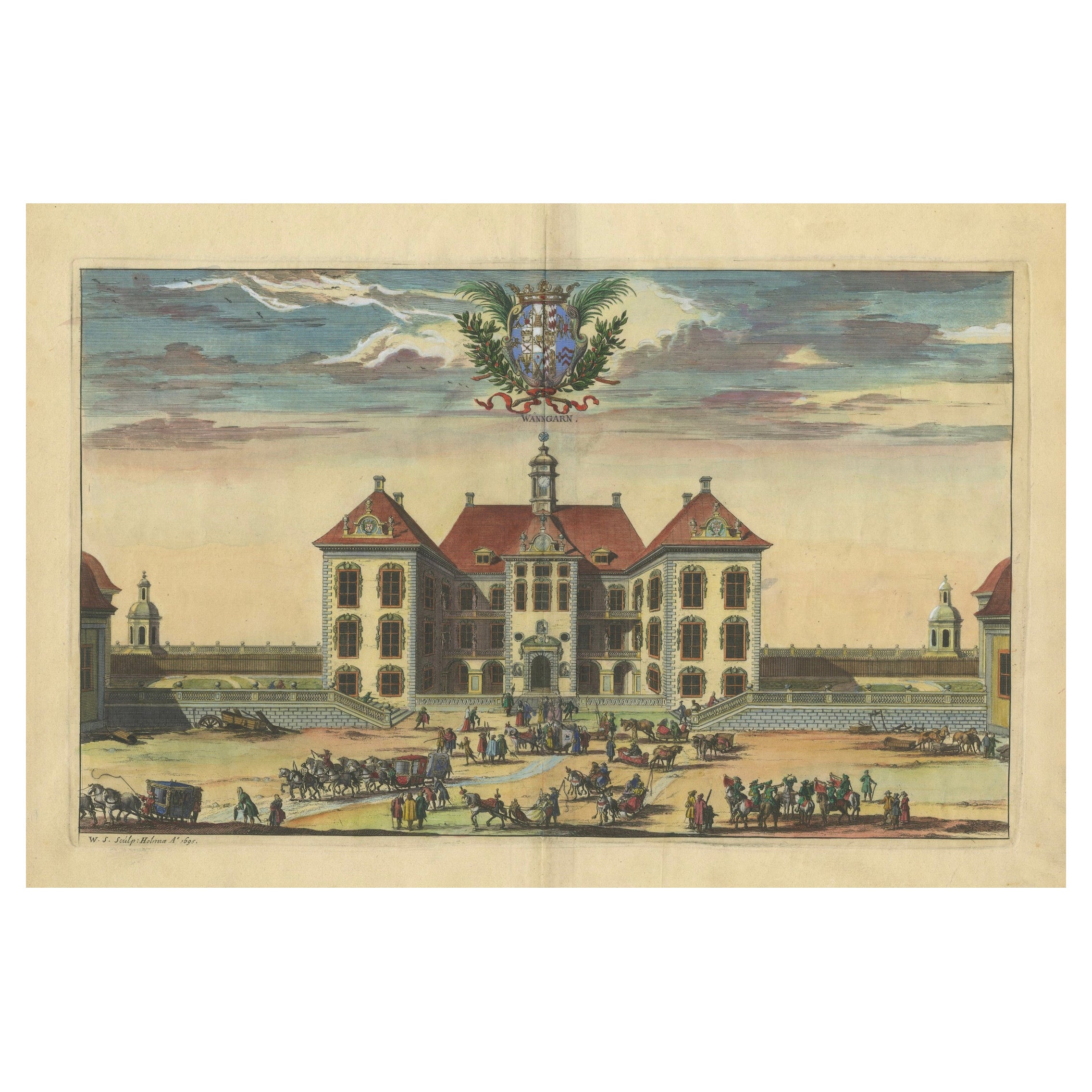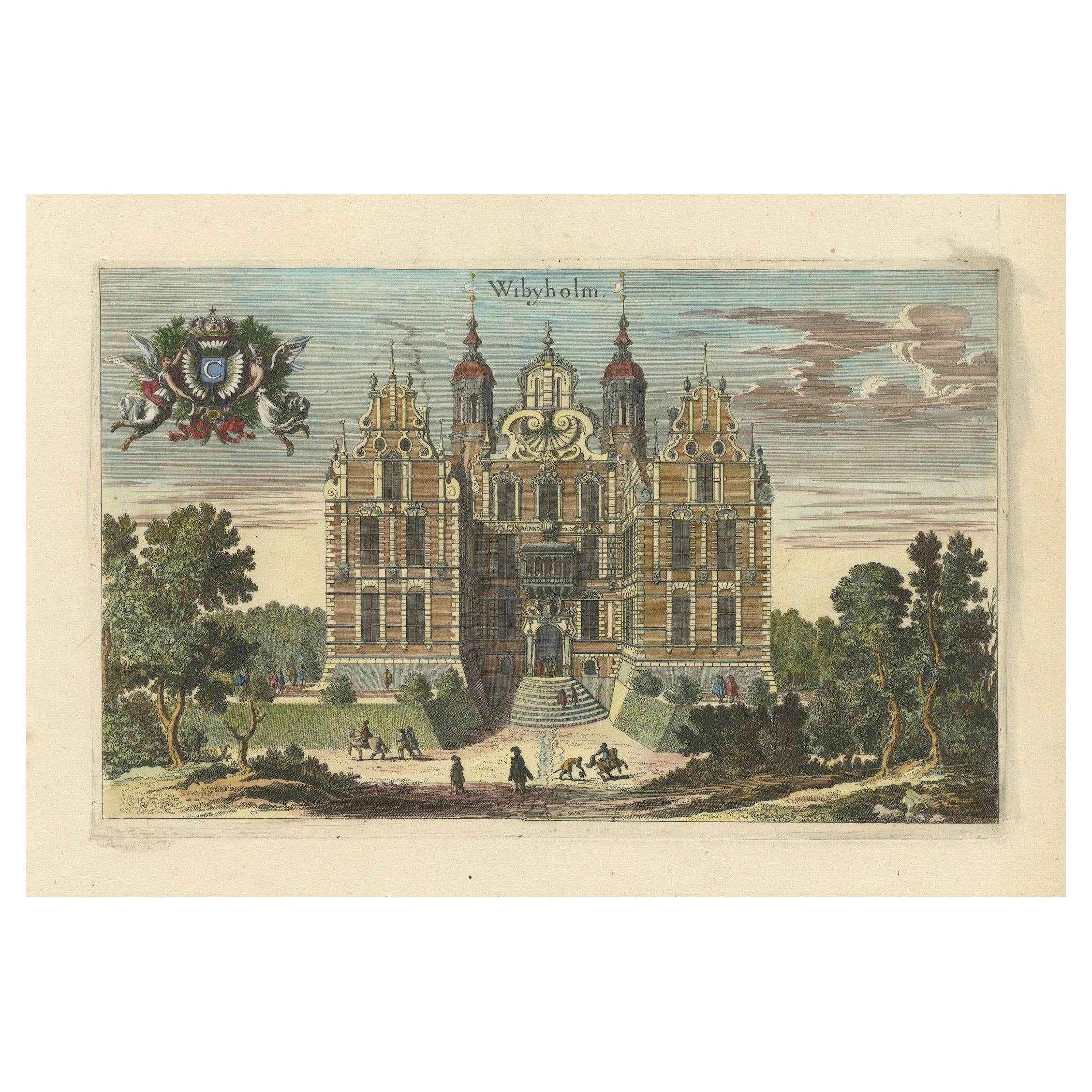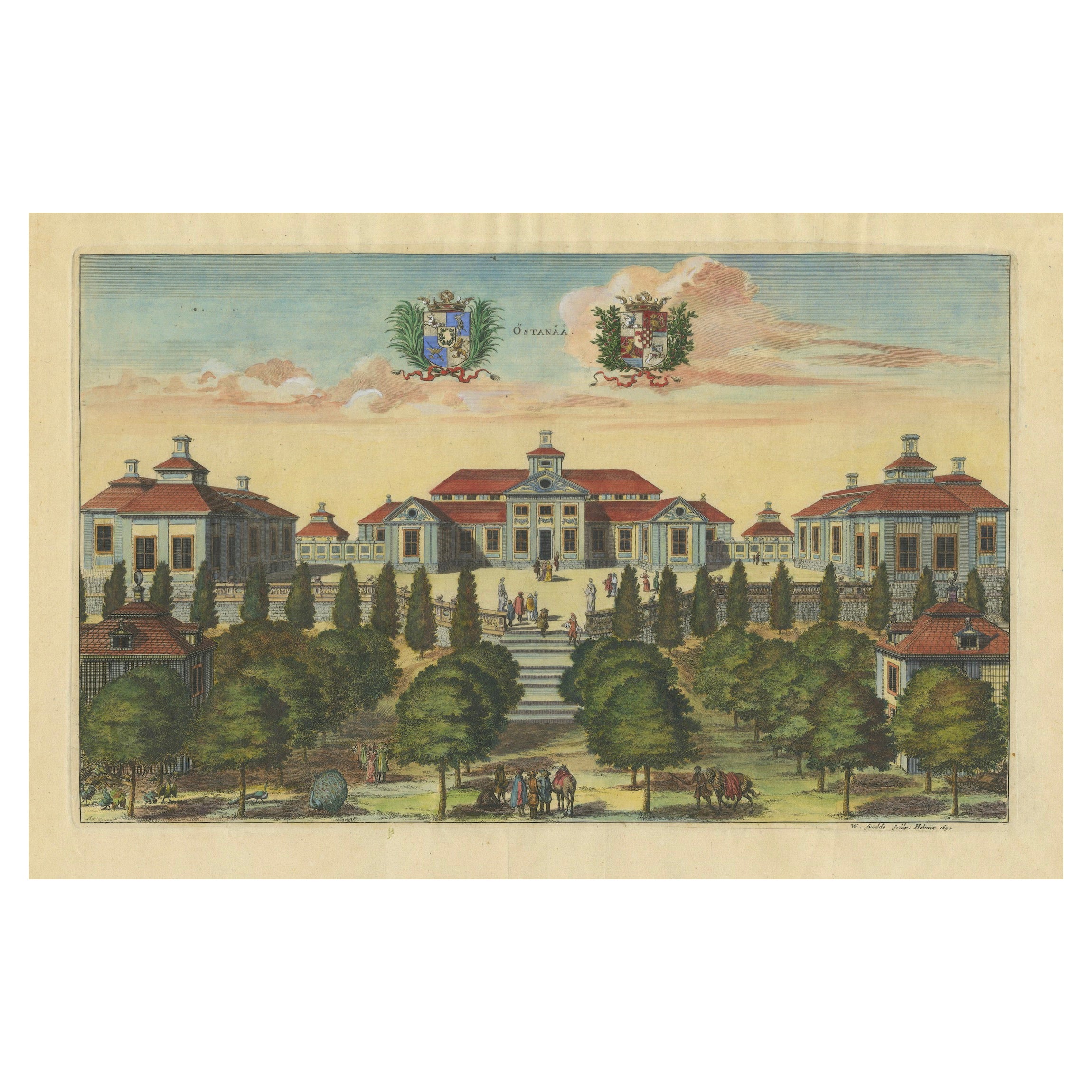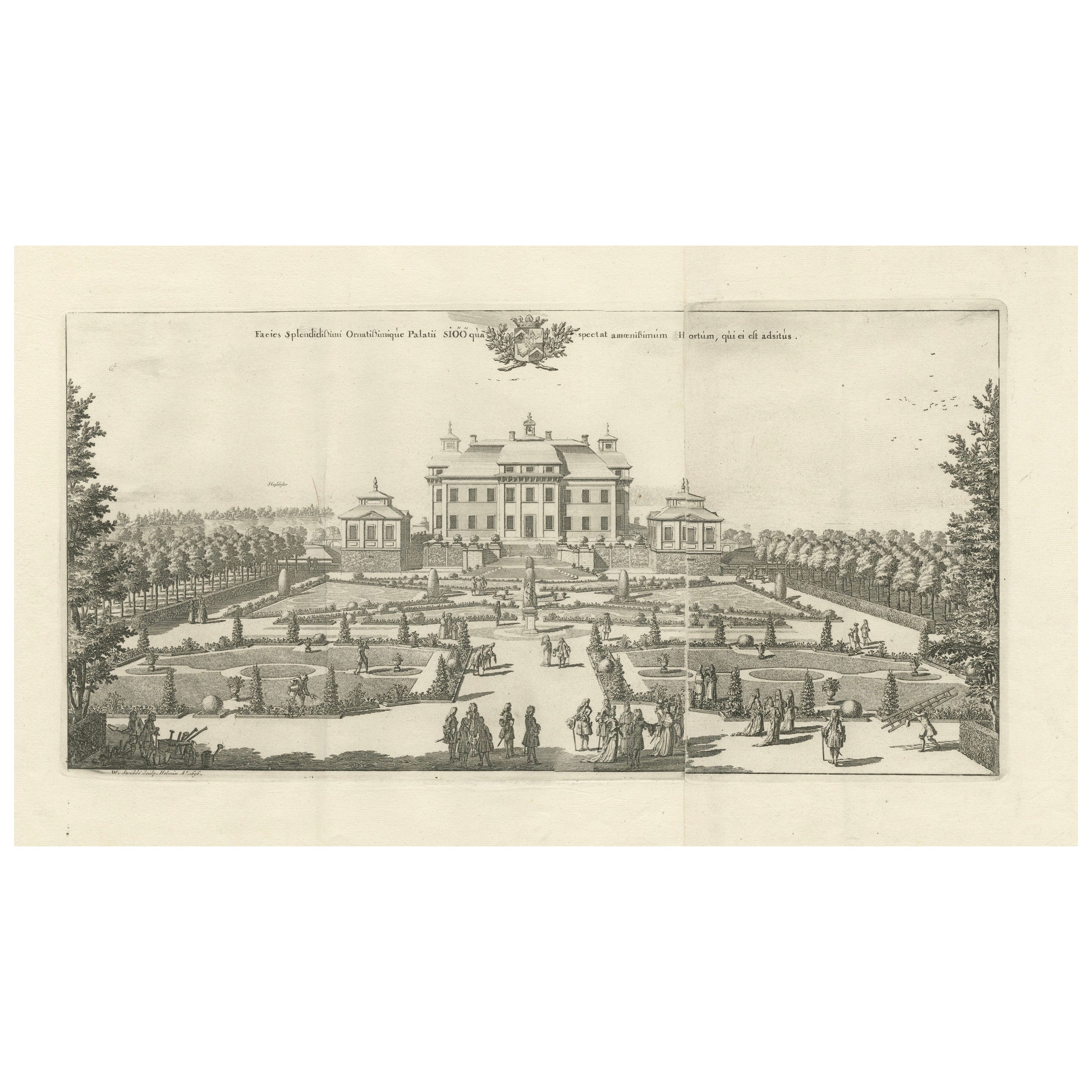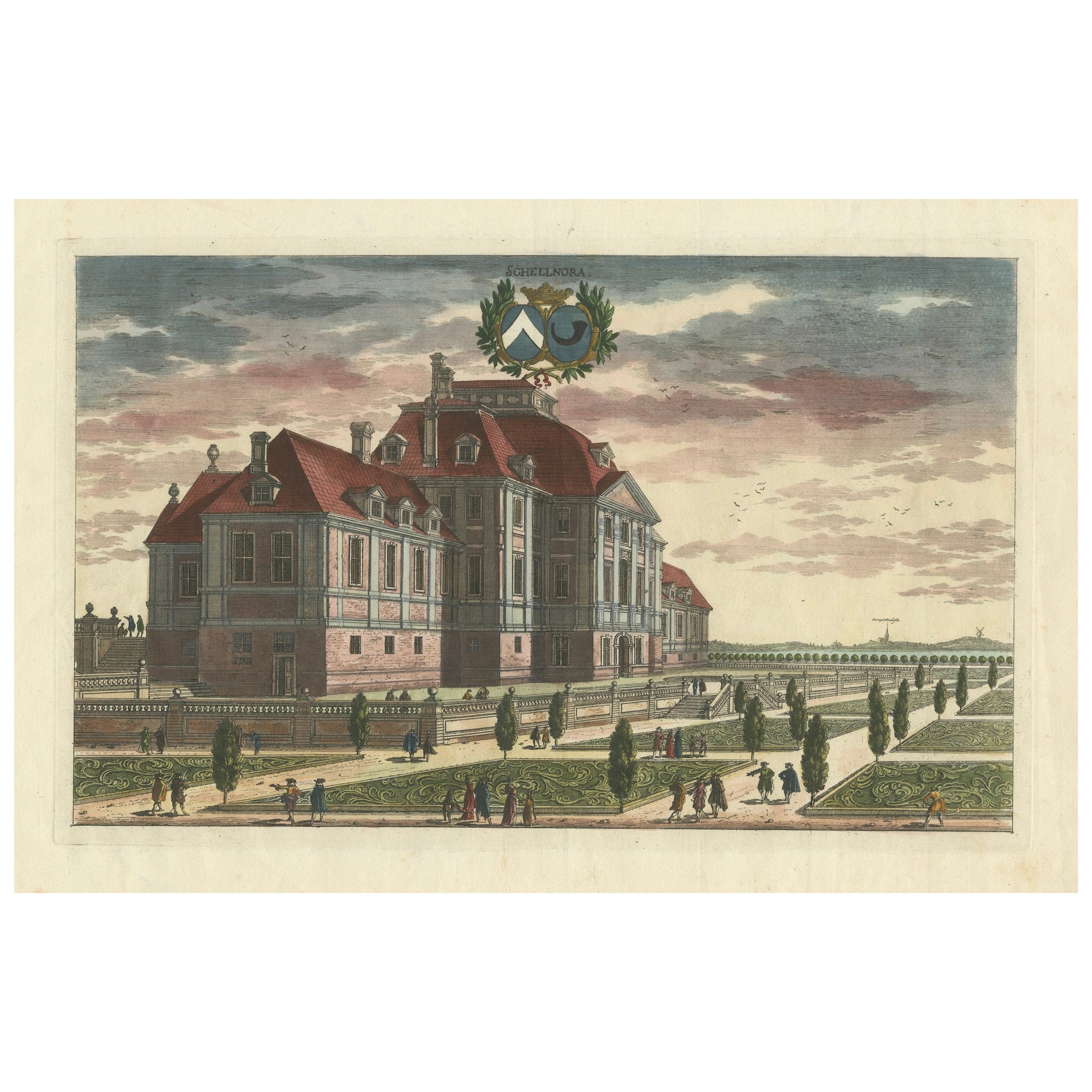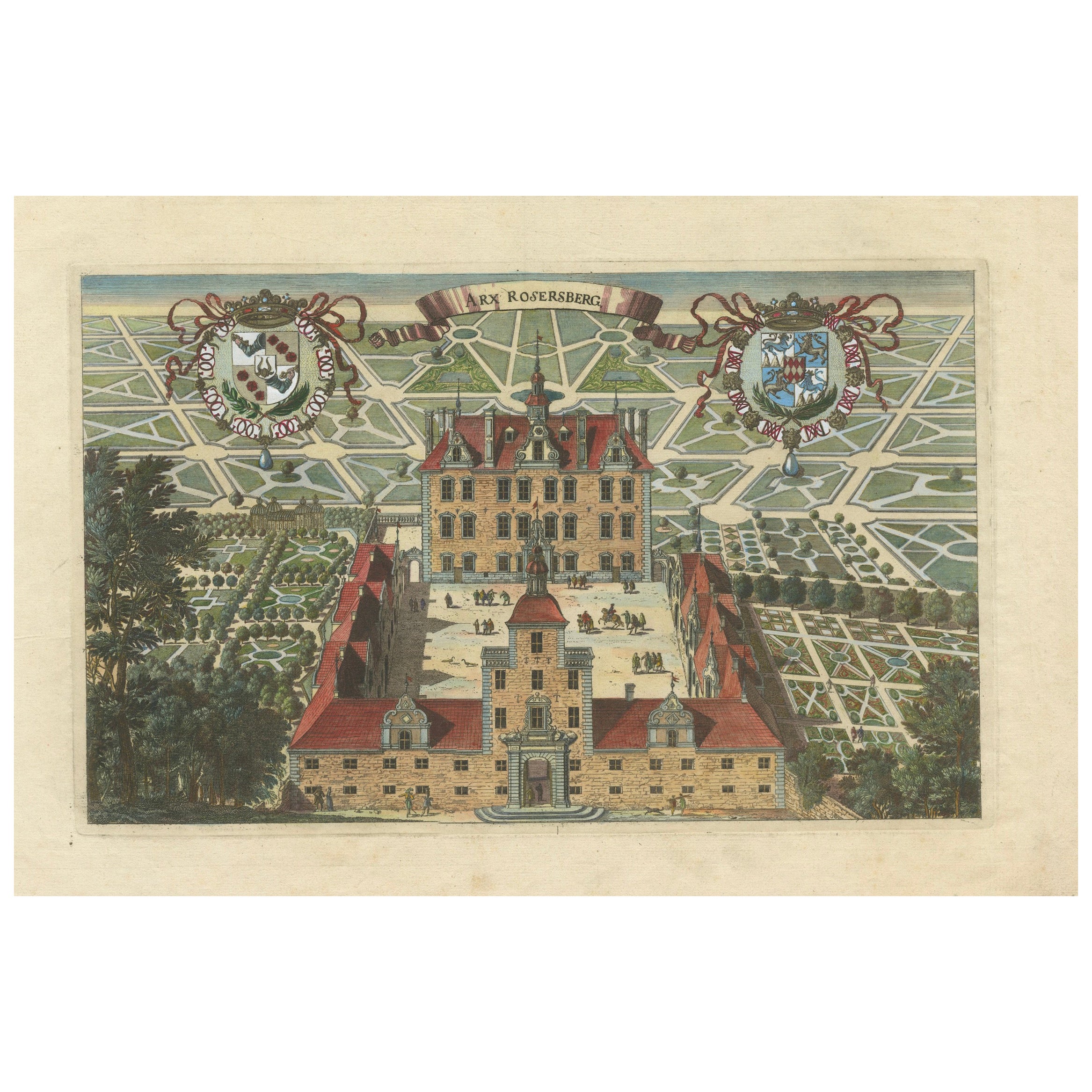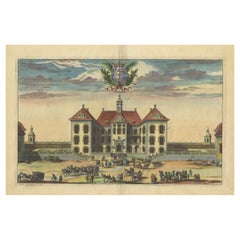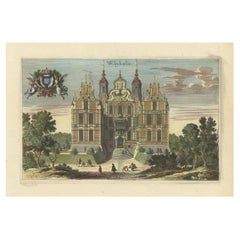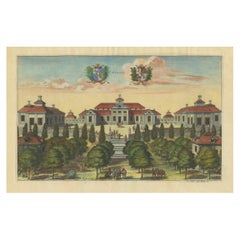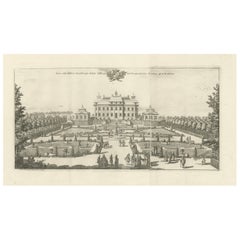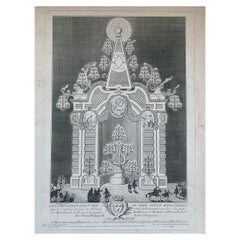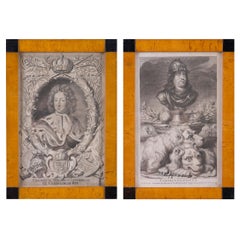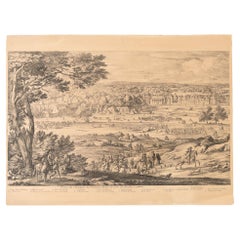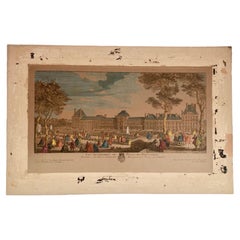Items Similar to Baroque Majesty: A Vibrant Assembly at Svartsjö Castle in Sweden, 1693
Want more images or videos?
Request additional images or videos from the seller
1 of 9
Baroque Majesty: A Vibrant Assembly at Svartsjö Castle in Sweden, 1693
$670.73
$838.4220% Off
£497.05
£621.3120% Off
€560
€70020% Off
CA$915.68
CA$1,144.6020% Off
A$1,018.66
A$1,273.3220% Off
CHF 533.99
CHF 667.4920% Off
MX$12,447.73
MX$15,559.6620% Off
NOK 6,799.73
NOK 8,499.6620% Off
SEK 6,401
SEK 8,001.2520% Off
DKK 4,263.79
DKK 5,329.7420% Off
Shipping
Retrieving quote...The 1stDibs Promise:
Authenticity Guarantee,
Money-Back Guarantee,
24-Hour Cancellation
About the Item
An handcolored original antique print of Svartsjö Castle, located on the island of Färingsö in Ekerö Municipality, Sweden. The castle has a rich history, with the current building dating back to the 18th century when it was constructed in the Baroque style. However, its roots go much deeper, with a medieval castle previously occupying the site.
Svartsjö Castle (Svartsjö slott) has served various functions over the centuries, including being a royal residence and, for a time, a prison. The name "Svartsjö" translates to "black lake," possibly referring to the dark waters of the adjacent lake Svartsjön.
The print shows the castle with people in period clothing in the foreground, suggesting it might be a scene from a significant event or day at the castle. The coat of arms at the top is likely linked to the noble family associated with the castle at the time the print was made.
Today, Svartsjö Castle is known for its beautiful architecture and gardens. It is a cultural heritage site and has been restored to reflect its historical significance. The castle and its grounds are open to visitors, allowing them to explore its history and enjoy the surrounding natural beauty.
More about an intriguing story of an event that happened in and around the castile:
The page from the Künker website tells about a specific historical period in Sweden related to Svartsjö Castle. The story involves Swedish King Erik XIV, who, due to a prophecy and his mental illness, killed members of the Sture family, whom he believed were conspiring against him. This event, known as the Sture Murders, took place at Svartsjö Castle. The aftermath led to "blood klippe," coins minted from silver that was used to compensate the families of the victims. These coins played a part in a subsequent revolt against King Erik XIV, contributing to his downfall.
More about the decorative coat of arms:
It is a richly decorated heraldic shield topped with a regal crown, signifying nobility or royal status. The shield is adorned with what appears to be multiple quadrants, each containing different heraldic symbols, possibly representing various territories or familial alliances. The central part of the shield features a pale, a vertical band, which is a common heraldic device.
The mantling, which looks like a leafy, decorative flourish, cascades from the helmet typically found in heraldry. This ornamental design is meant to evoke the protective cloth that would drape over and behind the helmet. The mantling is depicted in a stylized manner, adding to the grandeur of the coat of arms.
Surrounding the shield are ribbons, likely containing mottos or significant phrases, though they are not readable in the image provided. The entire coat of arms is framed by what seems to be laurel leaves, a symbol of victory or triumph.
The specific elements of the coat of arms, such as the charges on the shield and the style of the crown, could provide more detailed insights into the family, rank, and history associated with this emblem. However, without clearer visibility of the details and without additional context, it is challenging to provide a precise interpretation of the symbols or to whom the coat of arms belonged.
More about the work it is from:
The engraving is from the "Suecia Antiqua et Hodierna," a large work that includes engravings of various Swedish castles, towns, and other significant buildings from the 17th century. The coat of arms included in the image indicates that it is part of a noble or royal depiction.
The "Suecia Antiqua et Hodierna" was overseen by Erik Dahlbergh, and many of the engravings were produced by notable engravers of the time, including Willem Swidde and Jan van den Aveelen, among others.
The detailed work and style are consistent with the engravings found in Dahlbergh's collection, which often included the crests or coats of arms of the nobility associated with the castles or regions depicted.
- Dimensions:Height: 12.88 in (32.7 cm)Width: 16.15 in (41 cm)Depth: 0 in (0.02 mm)
- Materials and Techniques:Paper,Engraved
- Period:1690-1699
- Date of Manufacture:circa 1693
- Condition:Good. Some soiling due to handling and a light brownish hue on the edges, adding patina to this original engraving. A small crease in a bottom corner, not affecting the image. Please study the images carefully.
- Seller Location:Langweer, NL
- Reference Number:Seller: Bg-13670-181stDibs: LU3054338127502
About the Seller
5.0
Recognized Seller
These prestigious sellers are industry leaders and represent the highest echelon for item quality and design.
Platinum Seller
Premium sellers with a 4.7+ rating and 24-hour response times
Established in 2009
1stDibs seller since 2017
2,502 sales on 1stDibs
Typical response time: <1 hour
- ShippingRetrieving quote...Shipping from: Langweer, Netherlands
- Return Policy
Authenticity Guarantee
In the unlikely event there’s an issue with an item’s authenticity, contact us within 1 year for a full refund. DetailsMoney-Back Guarantee
If your item is not as described, is damaged in transit, or does not arrive, contact us within 7 days for a full refund. Details24-Hour Cancellation
You have a 24-hour grace period in which to reconsider your purchase, with no questions asked.Vetted Professional Sellers
Our world-class sellers must adhere to strict standards for service and quality, maintaining the integrity of our listings.Price-Match Guarantee
If you find that a seller listed the same item for a lower price elsewhere, we’ll match it.Trusted Global Delivery
Our best-in-class carrier network provides specialized shipping options worldwide, including custom delivery.More From This Seller
View AllVenngarn Castle, Uppland in Sweden: A Dahlbergh and Swidde Masterpiece, c. 1695
Located in Langweer, NL
Title: "Venngarn Castle, Uppland: A Dahlbergh and Swidde Masterpiece, c. 1695"
Description: This enchanting hand-colored copper engraving from circa 1695 captures the grand Venngarn...
Category
Antique Late 17th Century Prints
Materials
Paper
$459 Sale Price
20% Off
Free Shipping
Vibyholm Castle in Sweden: A Baroque Gem in Dahlbergh's Collection, ca.1675
Located in Langweer, NL
Title: "Vibyholm Castle: A Baroque Gem in Dahlbergh's Collection"
Description: This splendid hand-colored engraving from the 1670s features Vibyholm Castle, a notable example of Swe...
Category
Antique Late 17th Century Prints
Materials
Paper
$469 Sale Price
20% Off
Free Shipping
Baroque Splendor: The Östanå Manor in Gränna, 1692 Swidde Engraving
Located in Langweer, NL
An original copper engraving from the renowned "Suecia Antiqua et Hodierna," an atlas of Sweden created under the direction of Erik Dahlberg in the late 17th century. This particular engraving, crafted by Willem Swidde in 1692, depicts the Östanå herrgård (manor house) in Gränna, located in the Jönköping county of Småland.
The engraving showcases the manor in a stately fashion, with a classical architectural design featuring symmetrical wings and a central structure adorned with a grand staircase. The scene is animated with figures in the foreground, indicating the manor's role as a hub of activity and societal life. The garden layout...
Category
Antique Late 17th Century Prints
Materials
Paper
$498 Sale Price
20% Off
Free Shipping
The Sjö Castle and Gardens in the Swedish Countryside, 1696
Located in Langweer, NL
The engraving depicts a grand manor house surrounded by formal gardens. It is titled "Facies Splendidissimi Ornatißimique Palatii," which suggests it is an illustration of an opulent and ornate palace. The year noted for the engraving is 1696, and it was engraved by Swidde, referring to Willem Swidde, a Dutch artist known for his work in Sweden and his significant contributions to the collection "Suecia Antiqua et Hodierna" by Erik Dahlbergh...
Category
Antique 1690s Prints
Materials
Paper
Schelenora Manor: The Elegance of 17th Century Swedish Nobility, ca.1699
Located in Langweer, NL
This is an antique hand-colored print depicting the manor known as Schelenora, showing the building's facade and garden. The engraving is part of the collection "Suecia Antiqua et Hodierna" ("Ancient and Modern Sweden") by Erik Dahlbergh, a monumental work illustrating the grandeur of Sweden during its period as a great power.
Sköldnora Manor, previously known as Skällnora, is located in Fresta parish, Upplands Väsby municipality, Stockholm County, on the eastern shore of Lake Norrviken. The estate dates back to 1276 and has a rich history including ownership by Birger Persson, the father of Saint Bridget, in 1296. The original main building depicted in "Suecia antiqua et hodierna" was demolished in 1718. The current main building, completed in 1741, showcases Rococo...
Category
Antique 1690s Prints
Materials
Paper
$440 Sale Price
20% Off
Free Shipping
Rosersberg Castle and Gardens in the Swedish Baroque Era, 1690
Located in Langweer, NL
The engraving is a historical depiction of Rosersberg Castle, a baroque estate in Sweden. These engravings, often created in the 1690s as part of Erik Dahlberg's collection, typically showcase a bird's-eye view of the castle and its elaborate gardens. Such prints are valuable for their detailed representation of Swedish architectural heritage from the era of baroque grandeur. They usually feature notable age-related toning and wear, indicative of their antique status. These pieces of art are collectibles that capture the essence and grandiosity of Swedish noble...
Category
Antique 1690s Prints
Materials
Paper
You May Also Like
Jacques-Philippe Le Bas "The Illumination" Engraving 18th Century
By Jacques-Philippe Le Bas
Located in Beuzevillette, FR
Interesting engraving by Jacques-Philippe Le Bas depicts the illuminations set up on the evening of 29 August 1739 at the crossroads of St Denys and La Ferronnerie for the wedding of...
Category
Antique 18th Century European Prints
Materials
Paper
Pair of 17th Century Engravings of Swedish Kings Karl X & Karl XI
Located in Miami, FL
A pair of fine engravings of two Swedish monarchs by Samuel Blessendorf for Puffendorf’s History of Sweden, in antique birch frames, 1663 and 1696.
Engravings of Swedish King Karl X Gustav (b. 1622 - d. 1660) dated 1663 and his successor, King Karl XI (b. 1655 - d. 1697) from 1696 by Samuel Blessendorf, a Prussian enamel painter and engraver, born in Berlin in 1670. He designed and engraved these portraits for Puffendorf’s History of Sweden by Freiherr Samuel von Pufendorf (1632-1694), Historiographer to King Karl X of Sweden.
Freiherr Samuel von Pufendorf (b 1632 – d 1694) was a German jurist, political philosopher, economist and historian. He was born Samuel Pufendorf and ennobled in 1684 when he was made a baron by Charles XI of Sweden a few months before his death at age 62. Among his achievements are his commentaries and revisions of the natural law theories of Thomas Hobbes...
Category
Antique Late 17th Century Swedish Baroque Prints
Materials
Paper
Antique View of the Castle of Fontainbleau from the Garden
Located in Alessandria, Piemonte
View of the castle of FONTAINEBLEAU from the garden.
A rare engraving from the early nineteenth century.
ref. ST/777.
Category
Antique Early 19th Century French Other Prints
Materials
Paper
Jacques Rigaud Engraving Palais Des Thuilleries
Located in Los Angeles, CA
French 18th Century Jacques Rigaud engraving of Palais Des Thuilleries. The dimension is the sight of the image. This item is ready to be framed to your...
Category
Antique 18th Century French Other Prints
Materials
Paper
Danish Golden Age Painting of a Soldier and a Lady at Rosenborg Castle
Located in Kastrup, DK
Oil painting from the Danish Golden Age (c. 1840-1860) portraying a soldier engaged in conversation with a lady, with the historic Rosenborg Castle elegantly positioned in the backgr...
Category
Antique Mid-19th Century Danish Empire Paintings
Materials
Canvas
Louis XIV Versailles Print Aquatinte Original by Israel Silvestre, France 1662
By Israel Silvestre
Located in La xara, VC
Original print with aquatinte ! exceptional ... Indian american
Restrike from a series of 106 plates by Israel Silvestre and François Chauveau, with ...
Category
Antique 17th Century French Louis XIV Prints
Materials
Paper
$2,335 Sale Price
70% Off
Free Shipping
More Ways To Browse
Engraved Crown
Chest Of Drawers With Pull Out Desk
Chinese Altar Vase
Chinese Carved Celadon Jade
Chinese Cloisonne Plate
Chinese Dragon Embroidered
Chinese Emperor Empress
Chinese Enamel Teapot
Chinese Frog
Chinese Ink Box
Chinese Table With Mother Of Pearl Inlay
Chinoiserie Fans
Chippendale Locked Cabinet
Clay Water Jug
Coiled Rattan
Column Indonesia
Concrete Garden Animals
Copper Buddha
